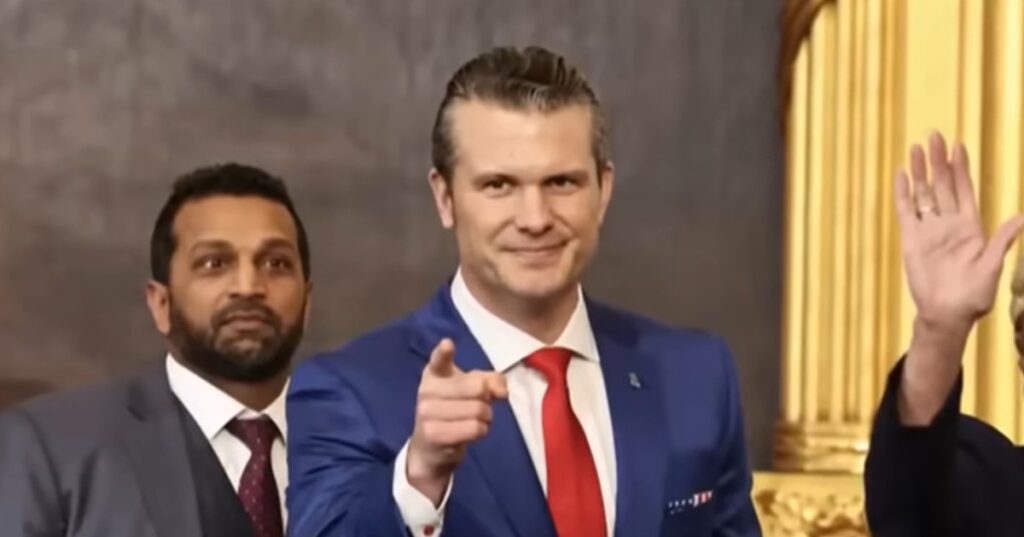Lieutenant General Joe McGee, the Joint Staff director for Strategy, Plans, and Policy, abruptly retired amid reported friction with the Trump administration. Coverage from outlets like Just the News and CNN framed the move as a pushout tied to a stalled promotion, while the Joint Staff issued a formal statement praising his service. The story exposes a broader clash between a senior officer nominated under Biden and a new leadership team with different priorities. This piece walks through the facts, the public statements, the reported behind-the-scenes disagreements, and what it likely means for Pentagon policy and personnel norms.
Reports say McGee left his post after a period of tension with Secretary of Defense Pete Hegseth and other leaders, and that his promotion stalled after being nominated by President Biden. That sequence — nomination under one administration, friction under another — is the heart of the controversy. Republican-leaning readers will see this as a clash over direction and loyalty inside the Pentagon, not merely routine personnel change.
A three-star general serving on the Pentagon’s Joint Staff has been pushed out of his position following months of sustained tensions with Secretary of Defense Pete Hegseth, according to people familiar with the matter. The general’s stalled promotion also contributed to his early retirement, the sources said.
CNN summarized the departures bluntly, and the phrasing “pushed out” drove the narrative among national outlets. The report says the retirement came after months of strain and a stalled promotion that never cleared the necessary steps under the new administration. That version feeds a broader media pattern of framing disagreements inside the military as scandal rather than policy divergence.
At the same time, official Pentagon messaging has been tidy and respectful, underscoring McGee’s long service while deflecting the anonymous-source drama. The Joint Staff spokesperson’s public note acknowledged his decades in uniform and criticized the focus on unnamed leakers. Those words matter in two ways: they try to keep the institution above partisan noise and they send a signal about how the Pentagon wants to manage internal disputes publicly.
Lt Gen. JP McGee will retire after nearly three years of outstanding leadership and service on the Joint Staff. We are grateful for his 35 years of honorable and dedicated service to the Nation. We owe him a great debt for his service and it is regrettable anonymous sources would put the focus anywhere else.
Beyond the official statement, reporting claims McGee clashed with Secretary Hegseth and Chairman Dan Caine on topics ranging from Russia and Ukraine to operations in the Caribbean. Those are exactly the kinds of strategic questions where administration priorities shape military planning and advice. When a senior officer nominated under the previous president takes a different line, tensions are likely.
. . . McGee had frequently “pushed back” against Hegseth and Chairman of the Joint Chiefs of Staff Dan Caine on issues ranging from Russia and Ukraine to military operations in the Caribbean. The sources noted that McGee was nominated by former President Joe Biden nearly a year ago for a promotion to serve as director of the Joint Staff but was never renominated by the current administration.
One recurring point in coverage is the stalled promotion itself, which the reporting ties to the decision to retire. Nominations that start under one administration do not always carry forward smoothly when leadership changes, especially if policy views diverge. That procedural reality matters because it’s how institutional alignment gets enforced without carries or drama.
The general’s stalled promotion has also been a source of tension. McGee was said to be nominated by former President Joe Biden to serve as director of the Joint Staff, a three-star officer who assists the Joint Chiefs of Staff. However, he was never renominated by President Donald Trump.
For conservatives watching the Pentagon, this episode underscores the value of making sure senior military leadership matches the elected commander-in-chief’s view of national security. It’s not personal so much as policy: leaders who disagree on key priorities create friction that can hinder clear civilian control. The administration’s handling — a guarded public tribute paired with no renomination — points to a preference for alignment over prolonged internal dispute.
Anonymous sourcing and media spin will keep this story alive in the short term, but the structural lessons are clear. Personnel moves like this are how administrations reset the military’s direction, and they will continue whenever strategic shifts occur at the top. Observers on the right will argue this outcome was necessary to restore coherence to defense planning under the current leadership.
McGee’s retirement closes one chapter but also highlights how fragile senior-post confirmations can be across administrations. The Biden nomination, the claimed pushback, and the Trump administration’s decision not to renominate combined to produce a rapid exit. That mix of politics and policy is now a routine part of how the Pentagon steady itself to follow new civilian direction.



